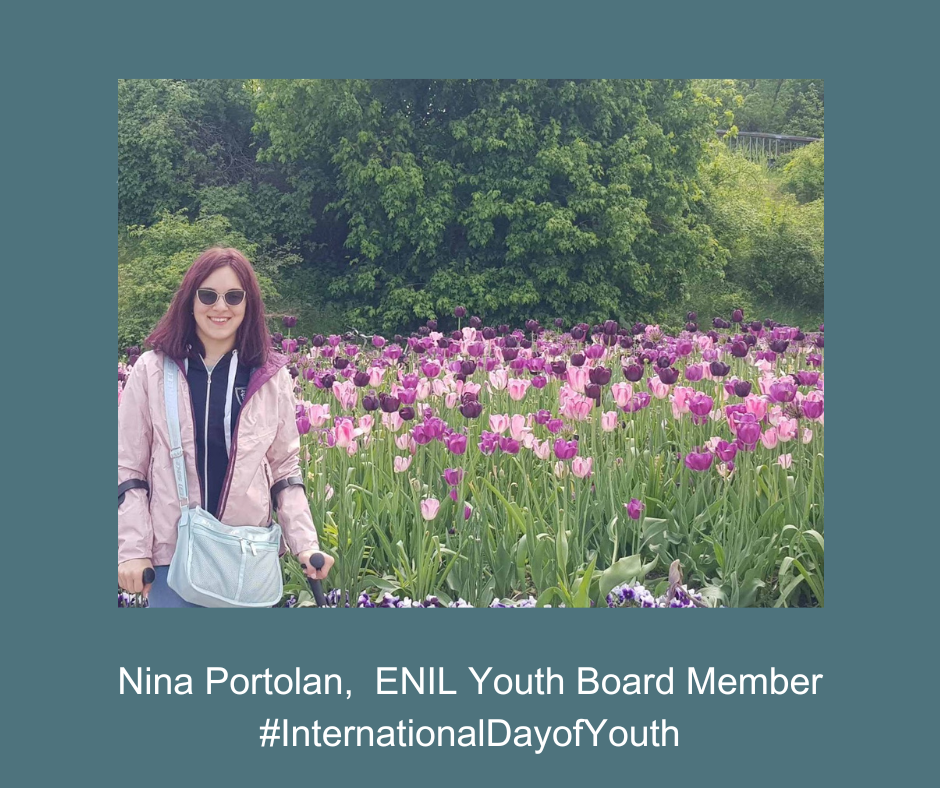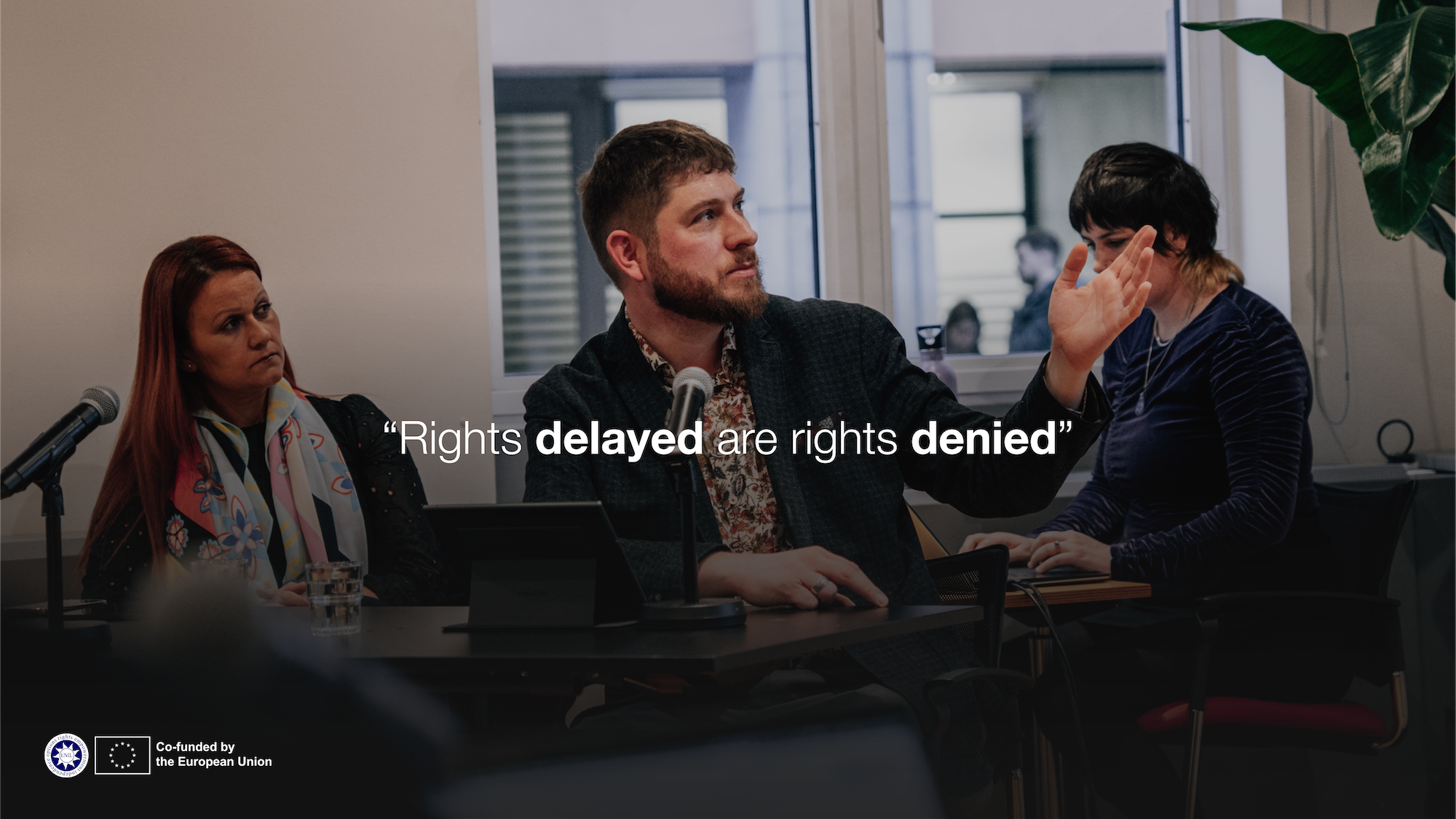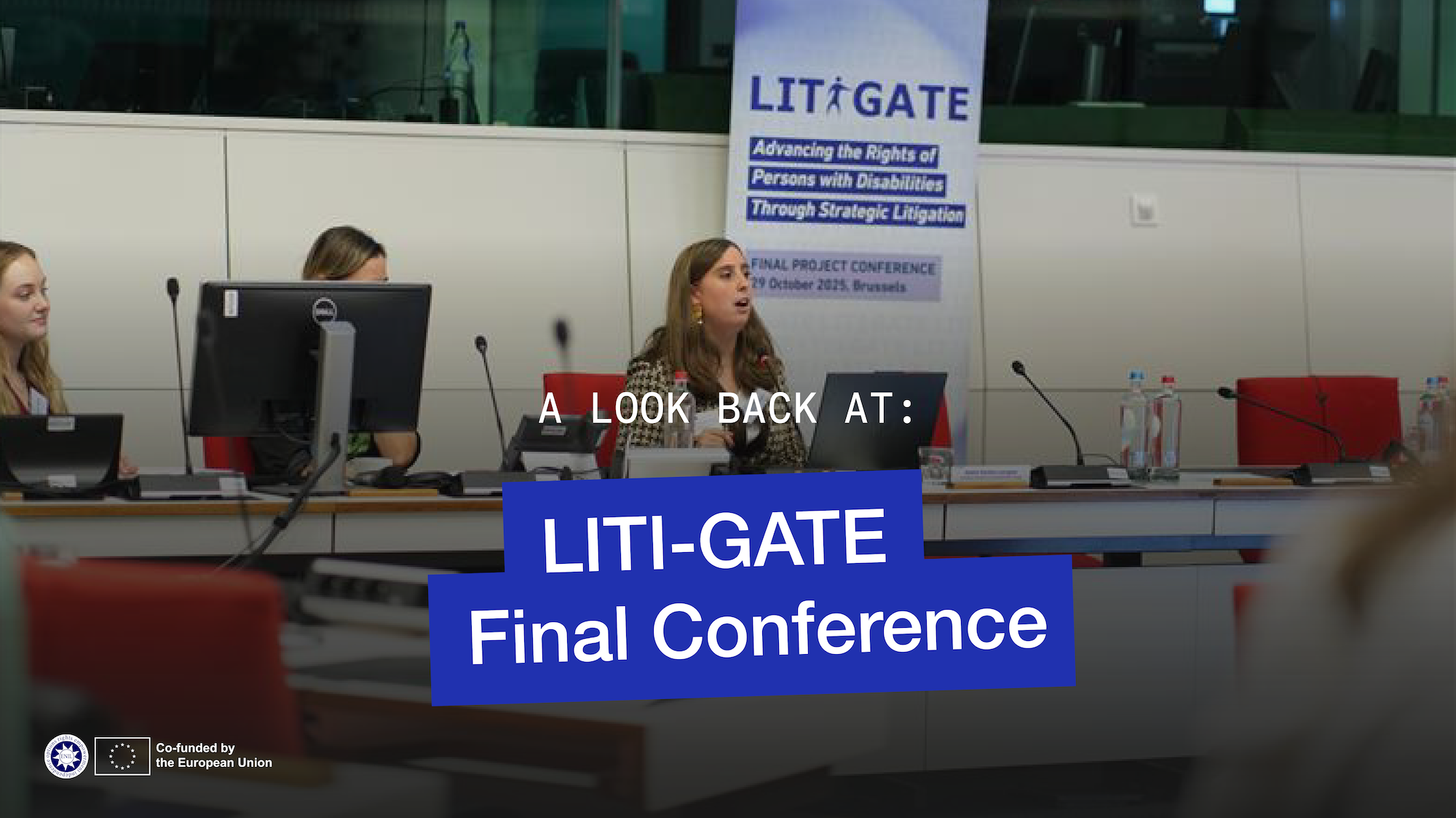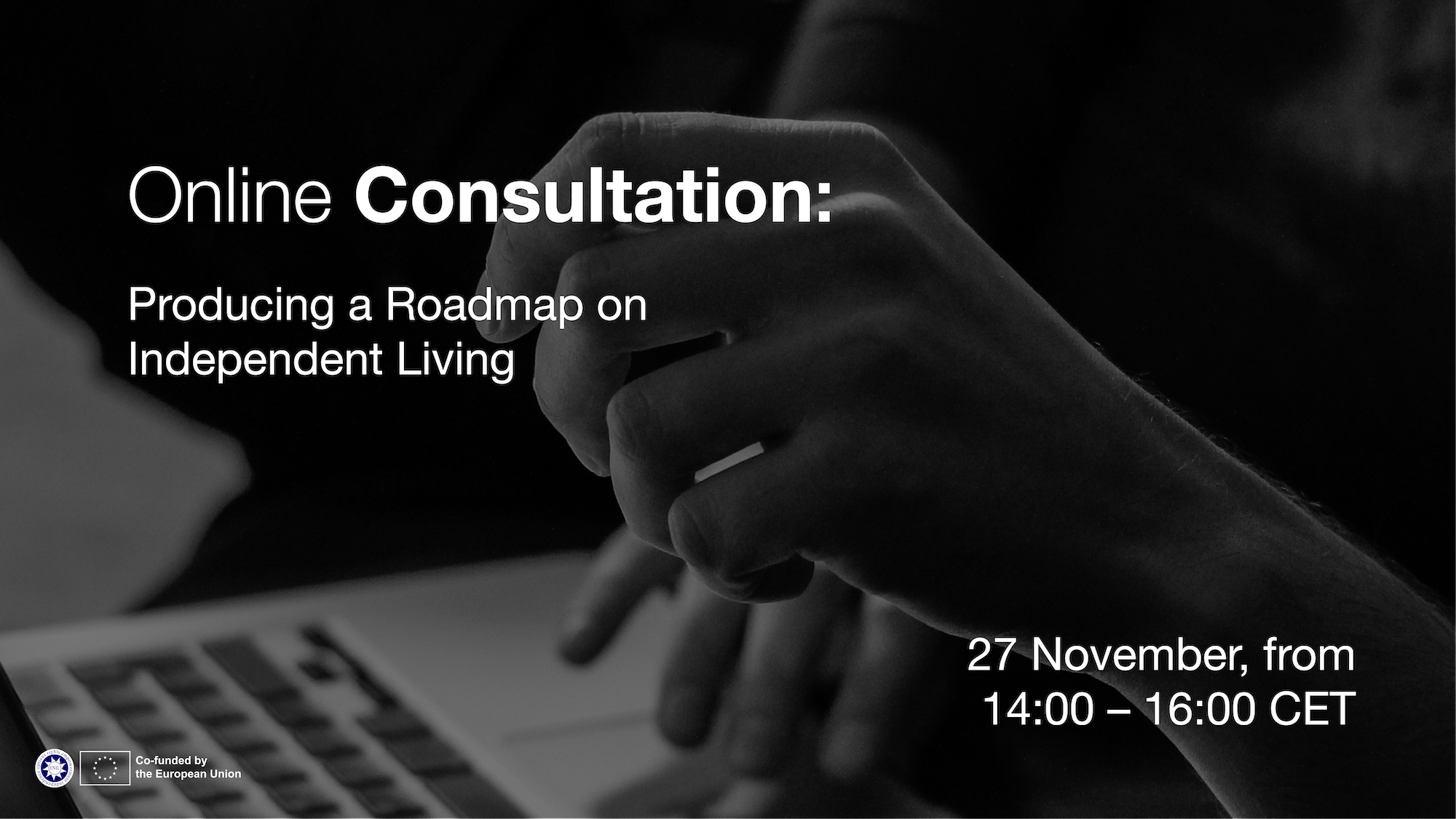Nina Portolan, ENIL Youth Network Board Member, writes about her experience with youth activism on the occasion of the International Youth Day on 12 August.
Being young is a mixture of exhilarating, happy moments, the thrill of feeling like the world is at your feet, frustration, uncertainty, mistakes, opportunities, and confusion. We try to figure out who we are. We try to imagine the person we will become. We strive.
Being young is hard enough, and it’s even harder when you add being disabled to it all. When you are young and disabled, things get more complicated, and paths get a little less clear.
Growing up, I remember the realisation I didn’t move like other kids when I was six. I remember the summer evening when I was 12, and it hit me: my life probably isn’t going to look exactly like those of my siblings. I remember not really knowing what any of it meant for my future, and maybe I still don’t. I’m still young; for a few more years. It sounds strange to think about, but seven years ago I was still mortified if anyone noticed anything I couldn’t do. Five years ago, I was still fighting my own body to do more than it could, still wrapped up in trying to fix myself. Today, I know I still have so much growing to do, but I’m much closer to simply being me. An education in disability rights and an accepting community of fellow activists allowed me to get there.
This is why, when I think about disabled youth, I think about role models, education, and unity. Possibly the most important part of figuring out my identity as a young disabled woman came from a study session in 2019, which led me to volunteering for ENIL and, slowly, to where I am today. I started down that path two years prior, while being part of an inclusive group in my sports club. The foundations of both of those pivotal moments can be summed up in one word: ACCEPTANCE.
It was acceptance from the outside that made me question and shift what was inside, and now what is inside is my guiding voice to unapologetically advocate for myself to create acceptance outside.
Where we are today is a road paved by the actions of so many activists before us, veterans of the movement like Adolf Ratzka, Kapka Panayotova, Judith Heumann, and many others. Today we look up to them as experts, but we mustn’t forget that they were once young voices just like us. I firmly believe the children and youth coming after me will have an easier path, but I also recognise that we, the youth of today, have the task of making sure of that ahead of us. There is still so much standing in the way of youth involvement in various aspects of life, especially for youth belonging to minorities and marginalised communities. None of this should deter us.
The disabled youth of today has an incredibly versatile toolbox at our disposal. Social media has given us the biggest platform we’ve ever had for any form of youth activism. Organisations across Europe are sharing resources and materials, along with study sessions, trainings, and workshops being available both online and in person. From personal experience, I can say that education on the disability rights movement and Independent Living principles, rooted in Human Rights: those are the things that can forge any young disabled person’s path to a more fulfilling life. It is the certainty in what we stand for that will change the narrative and break some of the barriers we face.
I know as much as anyone that we get tired. Sometimes I just want to be a person; sometimes I don’t want to advocate. It can feel like fighting windmills. As I voiced that recently, a wonderful friend pointed out that I’m not negative or giving up just because I feel negative sometimes. Life is confusing, and that’s okay. Sometimes a lot of good comes from just going forward and leaning into the unknown. Uncertainty and vulnerability don’t make us weak, they make us human.
Ultimately, the disability and independent living movement now lie in the hands of this generation. It is time to harness the potential of the attention European institutions have given to youth in recent years. Raising your voice when we have been taught by society that we are different is scary, but I am sure it is worth it. Speak up, even if your voice shakes. We are the next big names.



